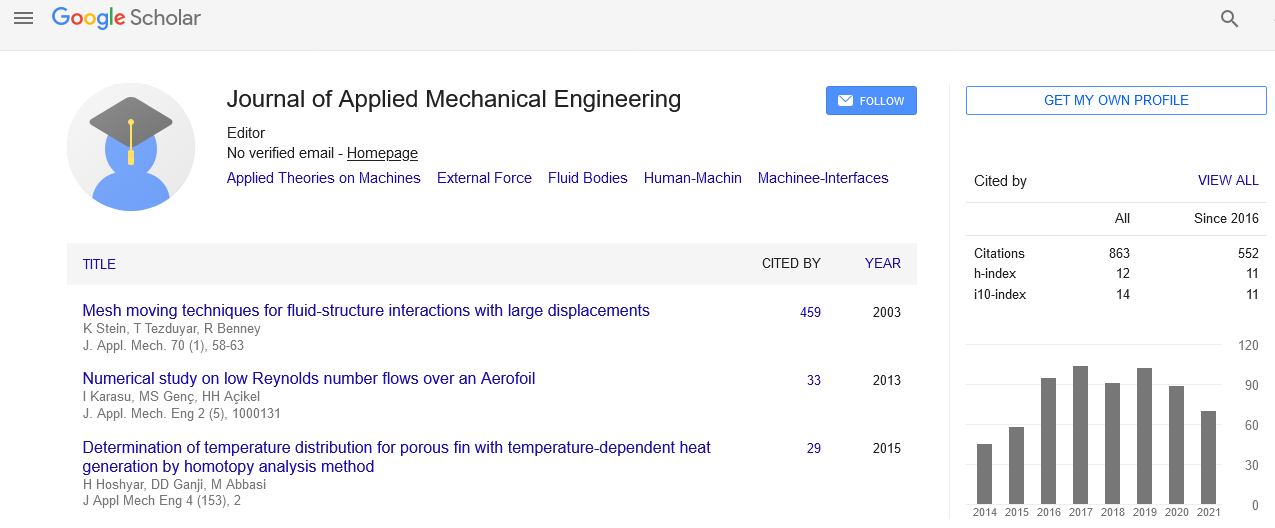Indexed In
- Genamics JournalSeek
- JournalTOCs
- CiteFactor
- RefSeek
- Hamdard University
- EBSCO A-Z
- OCLC- WorldCat
- Publons
- Google Scholar
Useful Links
Share This Page
Journal Flyer

Open Access Journals
- Agri and Aquaculture
- Biochemistry
- Bioinformatics & Systems Biology
- Business & Management
- Chemistry
- Clinical Sciences
- Engineering
- Food & Nutrition
- General Science
- Genetics & Molecular Biology
- Immunology & Microbiology
- Medical Sciences
- Neuroscience & Psychology
- Nursing & Health Care
- Pharmaceutical Sciences
One versus two: A different philosophy in simulated combat training
4th International Conference and Exhibition on Mechanical & Aerospace Engineering
October 03-04, 2016 Orlando, USA
Antonio O Dourado
Federal University of Santa Catarina, Brazil
Scientific Tracks Abstracts: J Appl Mech Eng
Abstract:
Pilots in military aviation are subjected to extreme conditions, like high-g maneuvers and flight in high angle of attack. In this sense, pilots must have good physiologic resistance besides proficiency in aircraft systems and weapons. Some suggest that with next generation aircraft with stealth features, beyond visual range combat will rule the skies. That can be true, but considering the designs of both Russian T-50 and Chinese J-20 and J-31 that give importance to maneuverability and stealth, it is not difficult to imagine an air combat starting in bvr but finishing in a dogfight. With this possible situation in mind, within visual range combat canā??t be neglected, and pilots must train hundreds of hours per year to achieve the desired proficiency in ACM. To present day, flight simulation in combat training has a separated approach regarding physiologic and tactical training: Use of g-seats coupled with large field of view image projection for tactical training and centrifuges for physiologic training. The drawbacks are clear: g-seat canā??t simulate extreme g-loads that undermine pilots stamina and current generation centrifuges (active or passive) canā??t be properly used for combat training due limitations described in literature (i.e. motion sickness due Coriolis effect). If one could combine in a simulator, strengths of both systems in one new flight simulator, thereā??ll be a revolution in combat training.This paper proposes a change in paradigm in combat training, showing a new concept of flight simulator, considering that close combat will be still relevant in the near future.
Biography :
Antonio O Dourado is a Professor of Flight Dynamics in the Aerospace Engineering Course at Federal University of Santa Catarina, Brazil and Editor of the journal Applied Physics Research. He obtained his Doctorate degree in Mechanical Engineering studying Military Dynamic Flight Simulators in 2012. Also, he has designed several motion simulators for aeronautic and automotive applications.
Email: aod@uol.com.br

